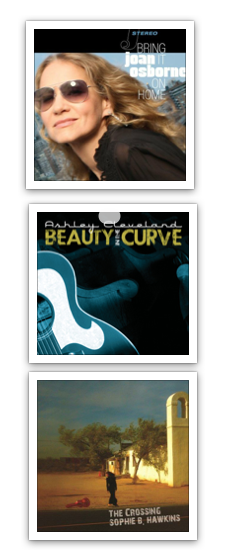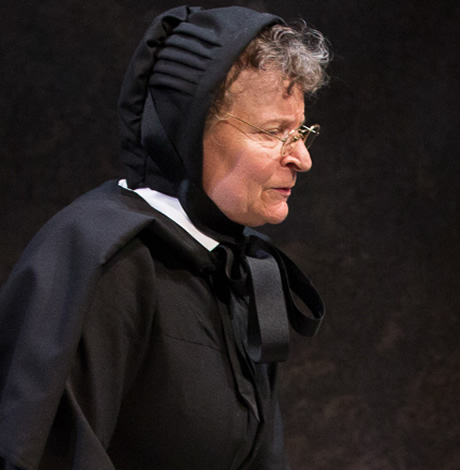Arts & Entertainment
3 great albums you probably missed
Osborne, Hawkins and Cleveland each had overlooked ’12 releases
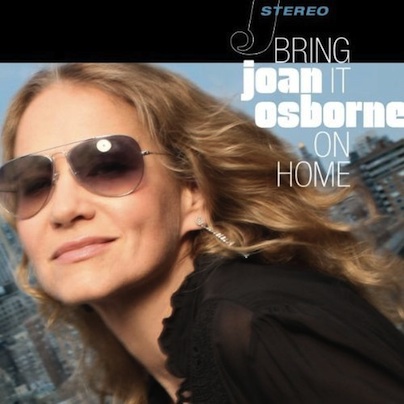
How much grit and growl you like in your pop music is like creamer in coffee — it’s a personal thing, though most would agree there’s such a thing as overkill. Three great ‘90s singer/songwriters, who all deserve to be much higher on the cultural radar than they are but whom, for various and far-ranging reasons have become victims of zeitgeist nonchalance, released new albums this year that are sadly in serious danger of falling through the cracks.
What’s most surprising is that the two who’ve always been known for rough, sometimes aggressive vocals — Joan Osborne and Ashley Cleveland — have reined in the rougher edges while Sophie B. Hawkins, whose voice has always been a scion of crystalline clarity, sounds sandier and patchier than ever. But in a good way.
It’s a minor miracle that these albums were released at all considering the solid decade of record industry upheaval. There’s little cushion left to support veteran but not top-selling artists, so they’re left to their own devices. They each deserve kudos for soldiering on.
Joan Osborne had done a few indie projects but had — by galaxies — her biggest commercial season in 1995 and 1996 with the album “Relish,” buoyed by her monster hit “One of Us” (which only sounds like a novelty at first; it really has staying power).
Her follow-up, 2000’s “Righteous Love,” took forever to come out. “Bring it One Home,” which dropped in March, is the latest in a string of quasi-concept albums. It’s mostly covers and skews heavy in the blues/R&B vein and sizzles with classy takes on second-tier standards. Unless you’re a historian, there will be cuts here that are new to you as they were to me. Osborne skillfully finds material here that’s not too obscure but not super obvious either (joanosborne.com). Standouts are the fun Ray Charles cover “I Don’t Need No Doctor,” the hard-grooving “Shake Your Hips” and the raucously up tempo “Roll Like a Big Wheel.”
Sophie B. Hawkins managed massive hits on her first two albums — “Damn, I Wish I Was Your Love” from 1992’s “Tongues and Tails” and “As I Lay Me Down” from 1994’s masterpiece “Whaler,” but hit tougher times, at least commercially, by the end of the decade with 1999’s “Timbre.” Her new album, “The Crossing” dropped in June and is her first release since 2004’s uneven-but-still-worthy “Wilderness.”
“The Crossing” is a rich and subversive record that needs several listens to sink in. Initially it sounds pleasant enough but not earth shattering, but slowly its jazzy, wrenching torch songs sneak up on your consciousness and you realize it has several great moments — the bluesy “Heart & Soul of a Woman,” the climax-stoking “Gone Baby” and the deliciously melodic “The Land the Sea and the Sky.” Hawkins includes acoustic remakes of her two monster hits — “Damn” and “Lay” — as bonus cuts and they’re so raw and bare, it’s almost startling. Startlingly effective, too, and wondrous to hear in such unvarnished style (sophiebhawkins.com).
Ashley Cleveland may have the smallest sales of the three but she’s also got three Grammys, all in the rock/gospel category where she set up camp in the early ‘90s after a commercially unfruitful launch at Atlantic with 1991’s “Big Town,” a great and criminally overlooked album, by the way. Her later albums, like 2002’s “Second Skin” and “2006’s “Before the Daylight’s Shot” aren’t as solid as her earlier work, but records like 1993’s “Bus Named Desire” and 1995’s “Lesson of Love” are so masterful, it would be hard for anything to stand up against such classics. She rebounded on sure footing with 2009’s gospel standards project “God Don’t Never Change.” This year’s “Beauty in the Curve” is available but isn’t on iTunes and can only be ordered through her site (ashleycleveland.com).
It’s definitely worth the effort to get — her greasy, garage-y interpretations of gospel songs like “City On a Hill,” “Walk in Jerusalem” and “Thief at the Door,” are balms to an ear burned out on too much of the usual Nashville-santitized contemporary Christian music. Black gospel knows this and has managed to sidestep it for the most part, although that brings its own issues — another essay. But Cleveland brings just enough left-of-center sensibilities to her gospel music to remain peerless. She often succeeds with simplicity — closing cut “Woke Up This Morning With My Mind on Jesus” is just her vocal with electric guitar and she succeeds in convincing you that’s just as it should be. Anything else would have been clutter.

More than a dozen LGBTQ athletes won medals at the Milan Cortina Winter Olympics that ended on Sunday.
Cayla Barnes, Hilary Knight, and Alex Carpenter are LGBTQ members of the U.S. women’s hockey team that won a gold medal after they defeated Canada in overtime. Knight the day before the Feb. 19 match proposed to her girlfriend, Brittany Bowe, an Olympic speed skater.
French ice dancer Guillaume Cizeron, who is gay, and his partner Laurence Fournier Beaudry won gold. American alpine skier Breezy Johnson, who is bisexual, won gold in the women’s downhill. Amber Glenn, who identifies as bisexual and pansexual, was part of the American figure skating team that won gold in the team event.
Swiss freestyle skier Mathilde Gremaud, who is in a relationship with Vali Höll, an Austrian mountain biker, won gold in women’s freeski slopestyle.
Bruce Mouat, who is the captain of the British curling team that won a silver medal, is gay. Six members of the Canadian women’s hockey team — Emily Clark, Erin Ambrose, Emerance Maschmeyer, Brianne Jenner, Laura Stacey, and Marie-Philip Poulin — that won silver are LGBTQ.
Swedish freestyle skier Sandra Naeslund, who is a lesbian, won a bronze medal in ski cross.
Belgian speed skater Tineke den Dulk, who is bisexual, was part of her country’s mixed 2000-meter relay that won bronze. Canadian ice dancer Paul Poirier, who is gay, and his partner, Piper Gilles, won bronze.
Laura Zimmermann, who is queer, is a member of the Swiss women’s hockey team that won bronze when they defeated Sweden.
Outsports.com notes all of the LGBTQ Olympians who competed at the games and who medaled.
Theater
José Zayas brings ‘The House of Bernarda Alba’ to GALA Hispanic Theatre
Gay Spanish playwright Federico García Lorca wrote masterpiece before 1936 execution

‘The House of Bernarda Alba’
Through March 1
GALA Hispanic Theatre
3333 14th St., N.W.
$27-$52
Galatheatre.org
In Federico García Lorca’s “The House of Bernarda Alba,” now at GALA Hispanic Theatre in Columbia Heights, an impossibly oppressive domestic situation serves, in short, as an allegory for the repressive, patriarchal, and fascist atmosphere of 1930s Spain
The gay playwright completed his final and arguably best work in 1936, just months before he was executed by a right-wing firing squad. “Bernarda Alba” is set in the same year, sometime during a hot summer in rural Andalusia, the heart of “España profunda” (the deep Spain), where traditions are deeply rooted and mores seldom challenged.
At Bernarda’s house, the atmosphere, already stifling, is about to get worse.
On the day of her second husband’s funeral, Bernarda Alba (superbly played by Luz Nicolás), a sixtyish woman accustomed to calling the shots, gathers her five unmarried daughters (ages ranging from 20 to 39) and matter-of-factly explain what’s to happen next.
She says, “Through the eight years of mourning not a breeze shall enter this house. Consider the doors and windows as sealed with bricks. That’s how it was in my father’s house and my grandfather’s. Meanwhile, you can embroider your trousseaux.”
It’s not an altogether sunny plan. While Angustias (María del Mar Rodríguez), Bernarda’s daughter from her first marriage and heiress to a fortune, is betrothed to a much younger catch, Pepe el Romano, who never appears on stage, the remaining four stand little chance of finding suitable matches. Not only are they dowry-less, but no men, eligible or otherwise, are admitted into their mother’s house.
Lorca is a literary hero known for his mastery of both lyrical poetry and visceral drama; still, “Bernarda Alba’s” plotline might suit a telenovela. Despotic mother heads a house of adult daughters. Said daughters are churning with passions and jealousies. When sneaky Martirio (Giselle Gonzáles) steals the photo of Angustias’s fiancé all heck kicks off. Lots of infighting and high drama ensue. There’s even a batty grandmother (Alicia Kaplan) in the wings for bleak comic relief.
At GALA, the modern classic is lovingly staged by José Zayas. The New York-based out director has assembled a committed cast and creative team who’ve manifested an extraordinarily timely 90-minute production performed in Spanish with English subtitles easily ready seen on multiple screens.
In Lorca’s stage directions, he describes the set as an inner room in Bernarda’s house; it’s bright white with thick walls. At GALA, scenic designer Grisele Gonzáles continues the one-color theme with bright red walls and floor and closed doors. There are no props.
In the airless room, women sit on straight back chairs sewing. They think of men, still. Two are fixated on their oldest siter’s hunky betrothed. Only Magdelena (Anna Malavé), the one sister who truly mourns their dead father, has given up on marriage entirely.
The severity of the place is alleviated by men’s distant voices, Koki Lortkipanidze’s original music, movement (stir crazy sisters scratching walls), and even a precisely executed beatdown choreographed by Lorraine Ressegger-Slone.
In a short yet telling scene, Bernarda’s youngest daughter Adela (María Coral) proves she will serve as the rebellion to Bernarda’s dictatorship. Reluctant to mourn, Adela admires her reflection. She has traded her black togs for a seafoam green party dress. It’s a dreamily lit moment (compliments of lighting designer Hailey Laroe.)
But there’s no mistaking who’s in charge. Dressed in unflattering widow weeds, her face locked in a disapproving sneer, Bernarda rules with an iron fist; and despite ramrod posture, she uses a cane (though mostly as a weapon during one of her frequent rages.)
Bernarda’s countenance softens only when sharing a bit of gossip with Poncia, her longtime servant convincingly played by Evelyn Rosario Vega.
Nicolás has appeared in “Bernarda Alba” before, first as daughter Martirio in Madrid, and recently as the mother in an English language production at Carnegie Melon University in Pittsburgh. And now in D.C. where her Bernarda is dictatorial, prone to violence, and scarily pro-patriarchy.
Words and phrases echo throughout Lorca’s play, all likely to signal a tightening oppression: “mourning,” “my house,” “honor,” and finally “silence.”
As a queer artist sympathetic to left wing causes, Lorca knew of what he wrote. He understood the provinces, the dangers of tyranny, and the dimming of democracy. Early in Spain’s Civil War, Lorca was dragged to the the woods and murdered by Franco’s thugs. Presumably buried in a mass grave, his remains have never been found.
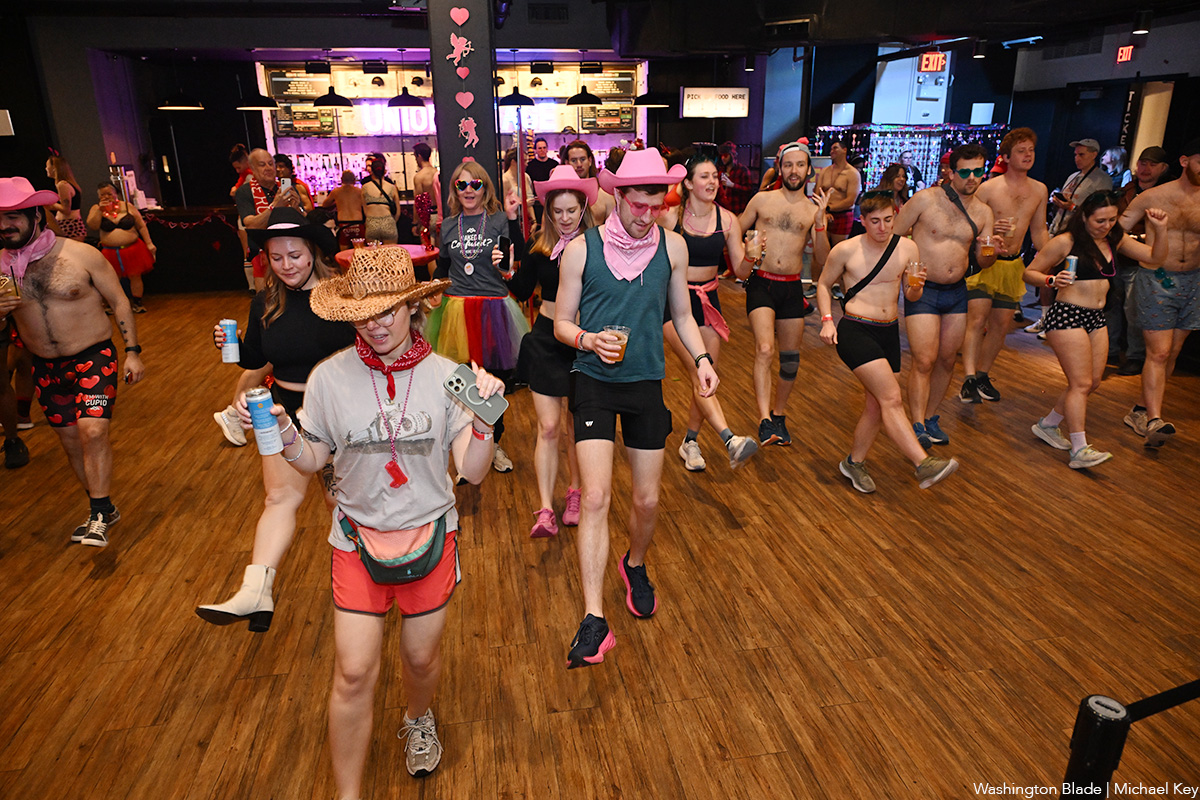
Cupid’s Undie Run, an annual fundraiser for neurofibromatosis (NF) research, was held at Union Stage and at The Wharf DC on Saturday, Feb. 21.
(Washington Blade photos by Michael Key)
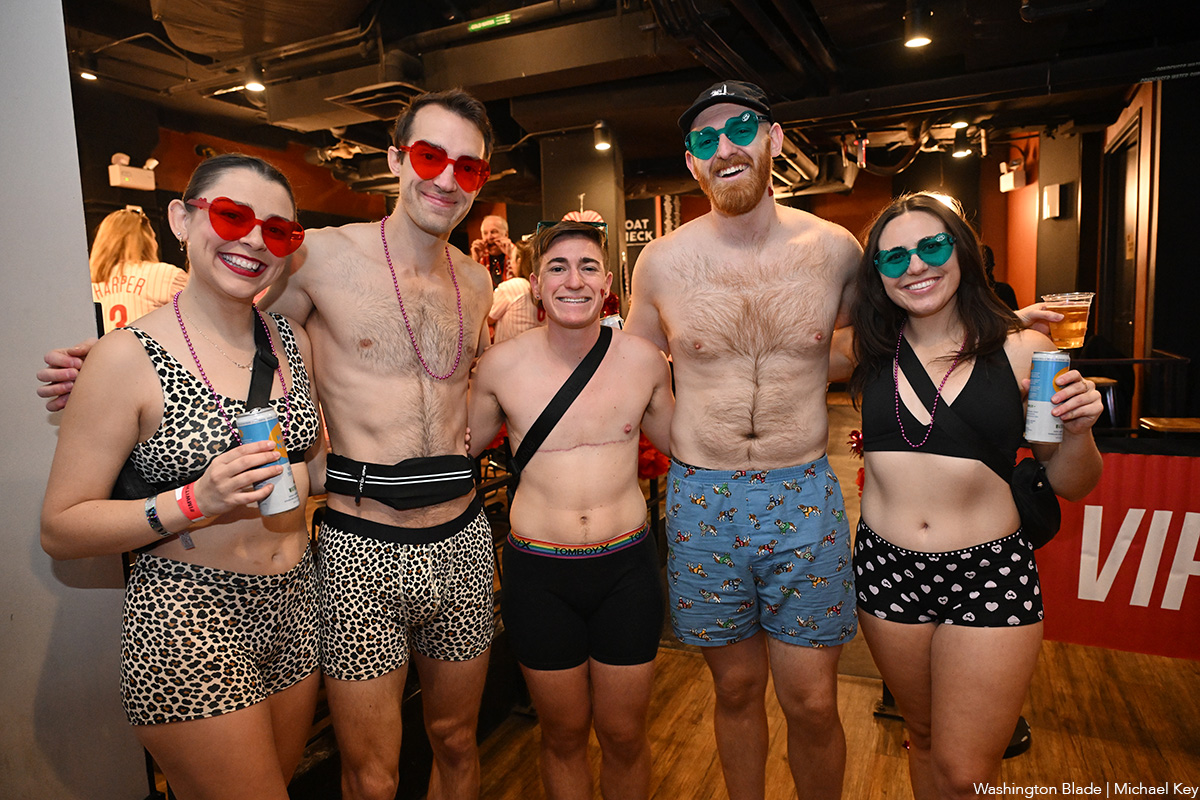
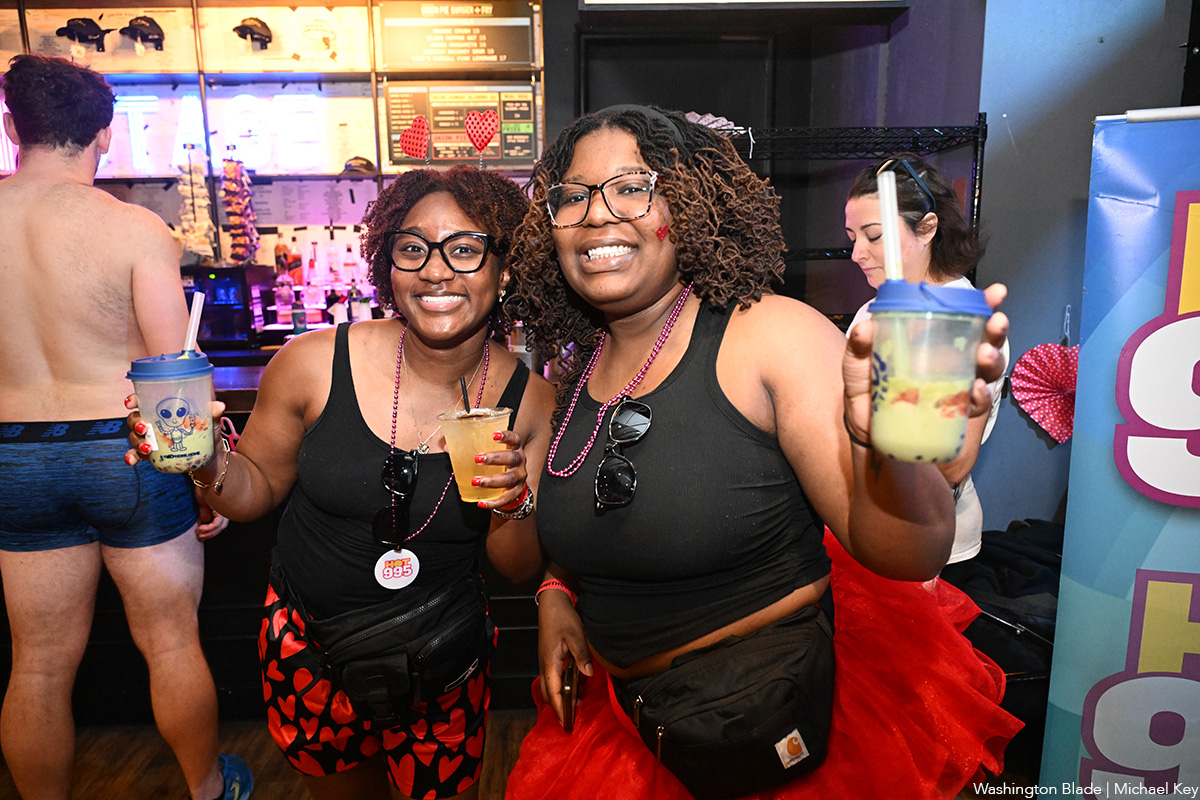
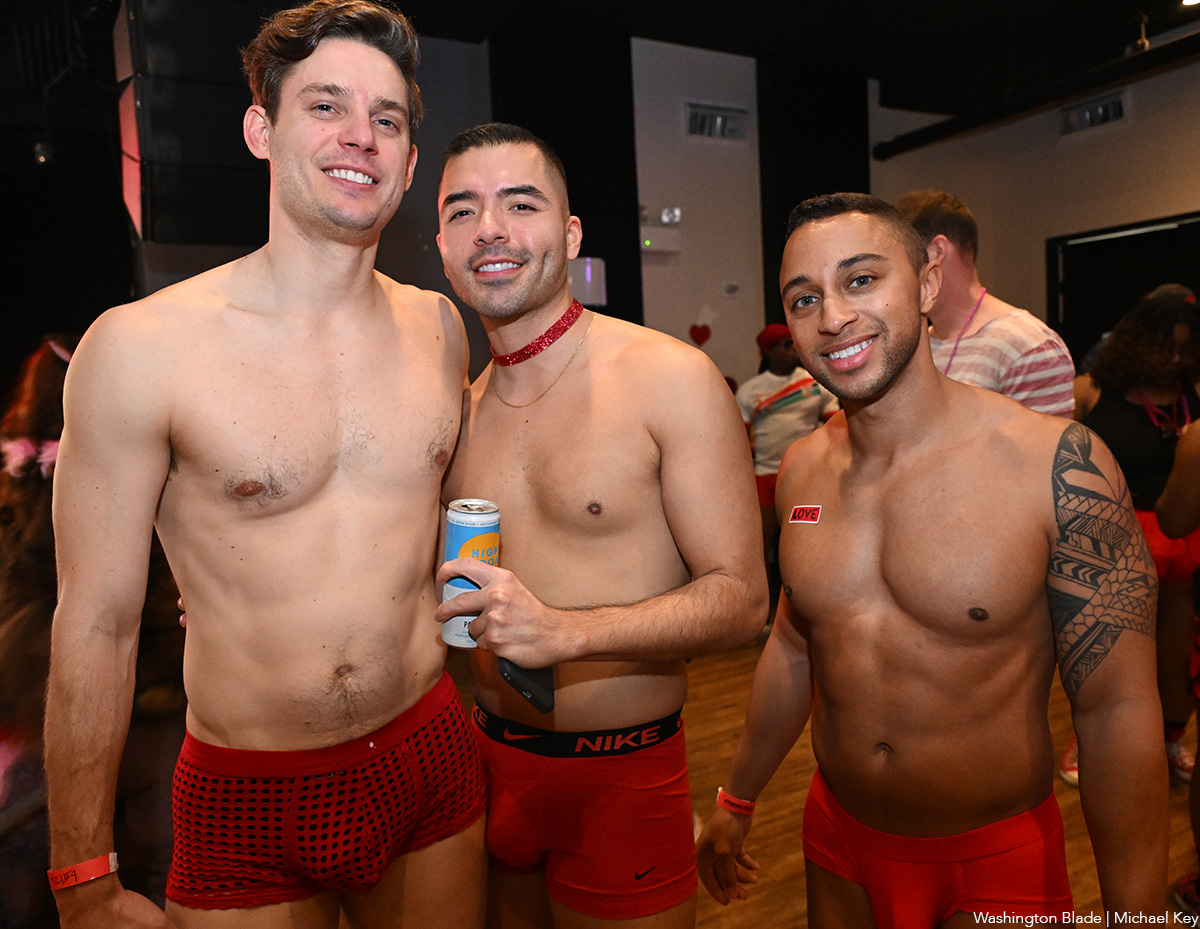
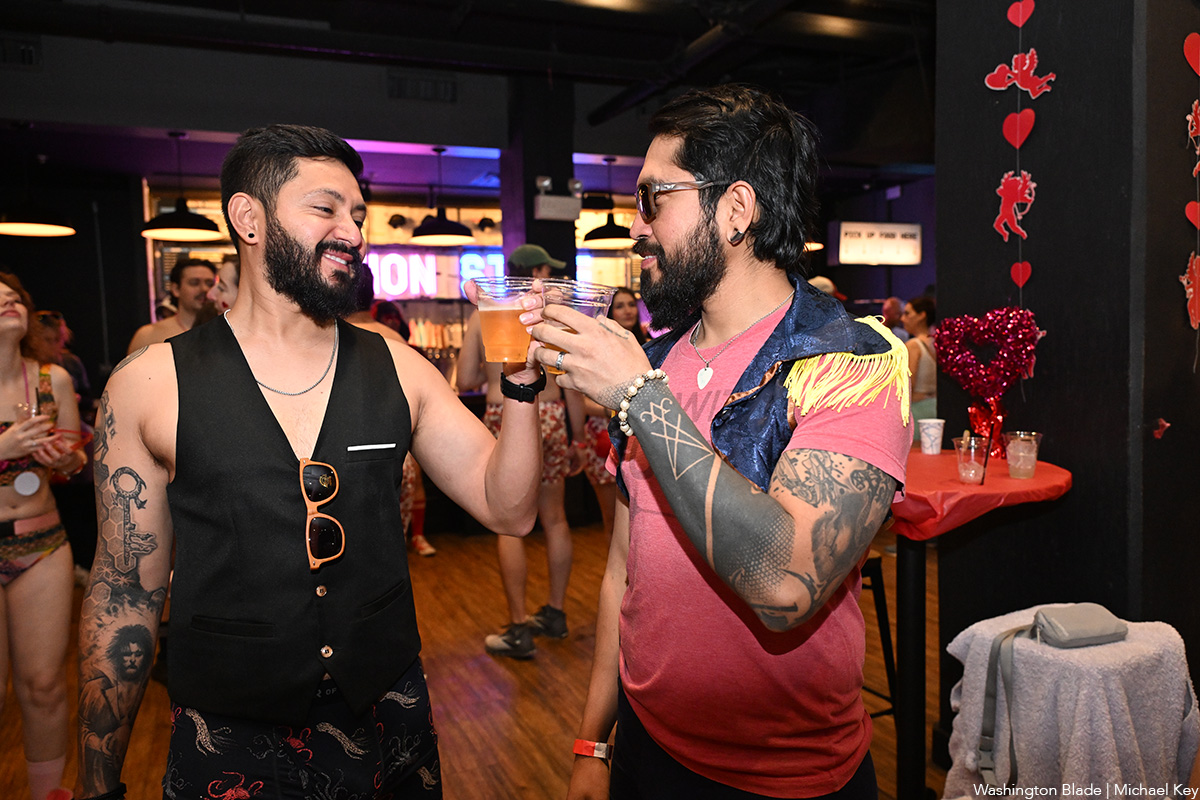
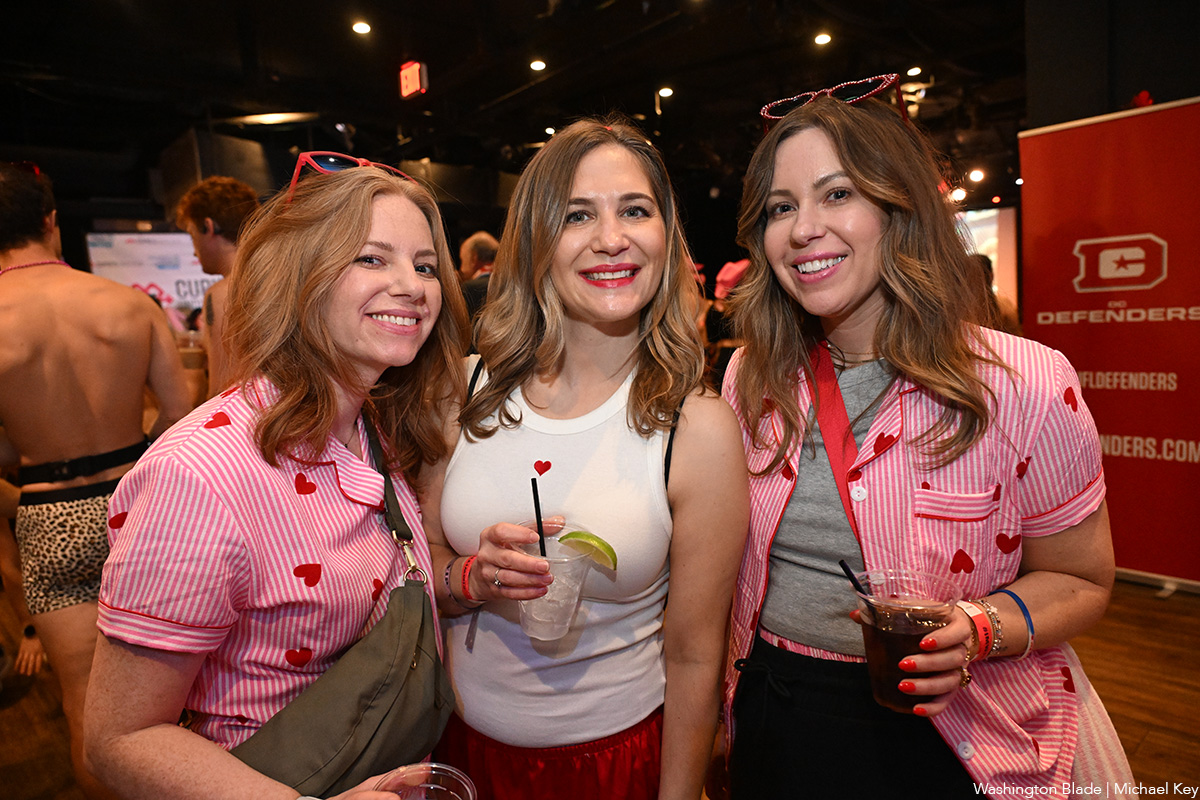
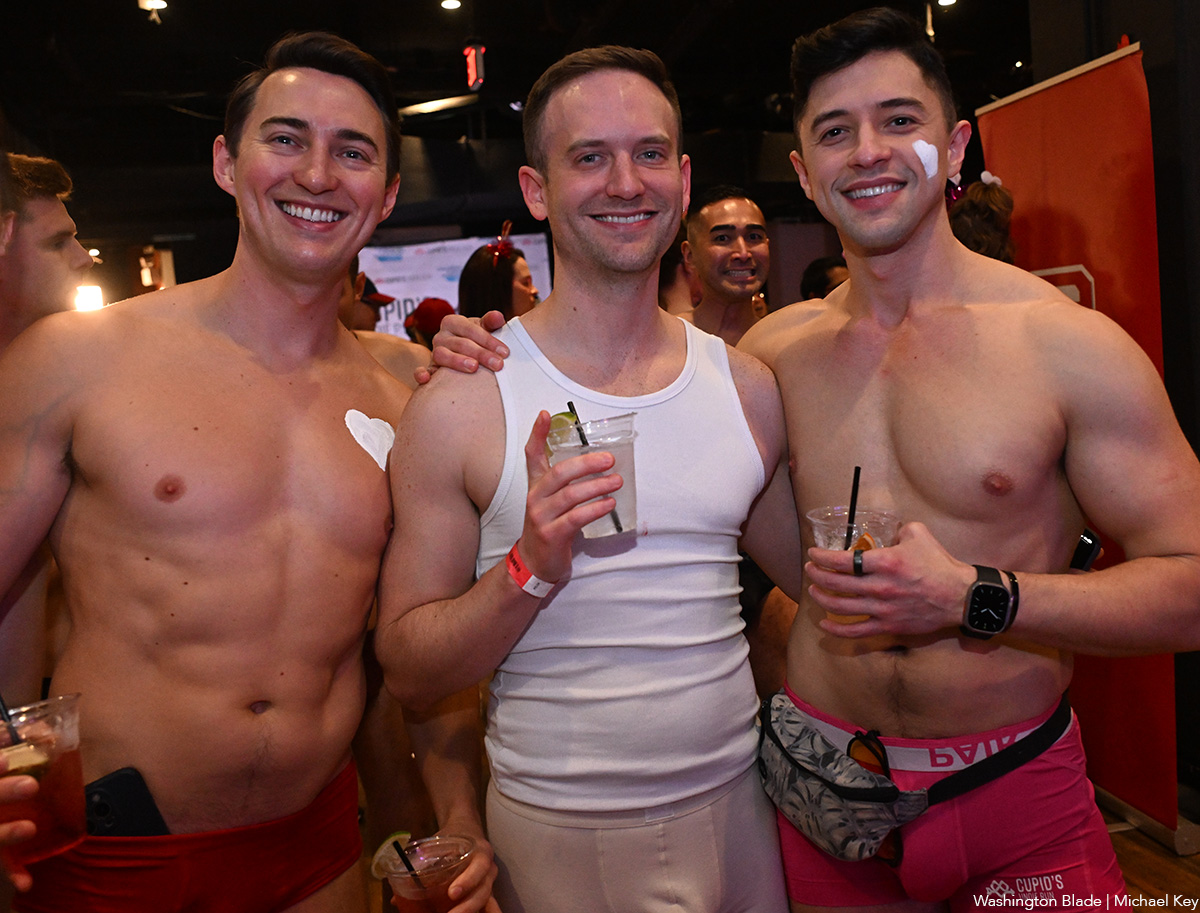
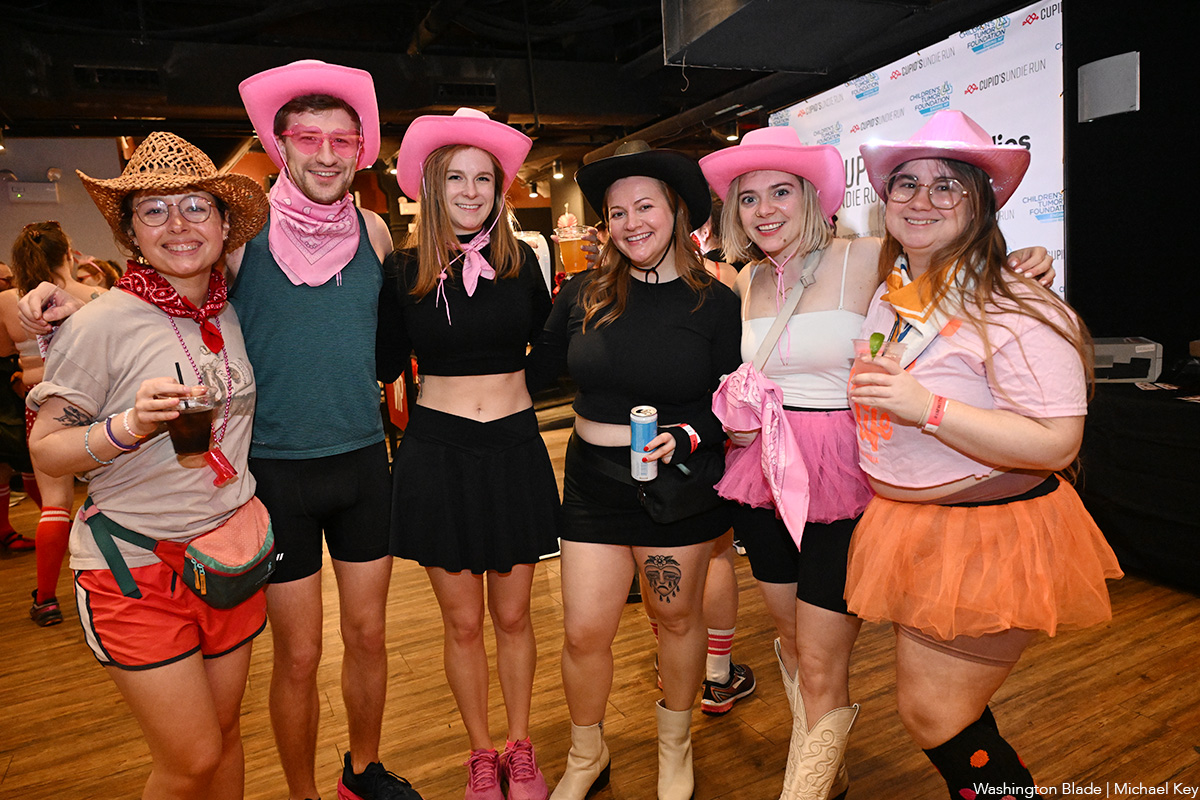
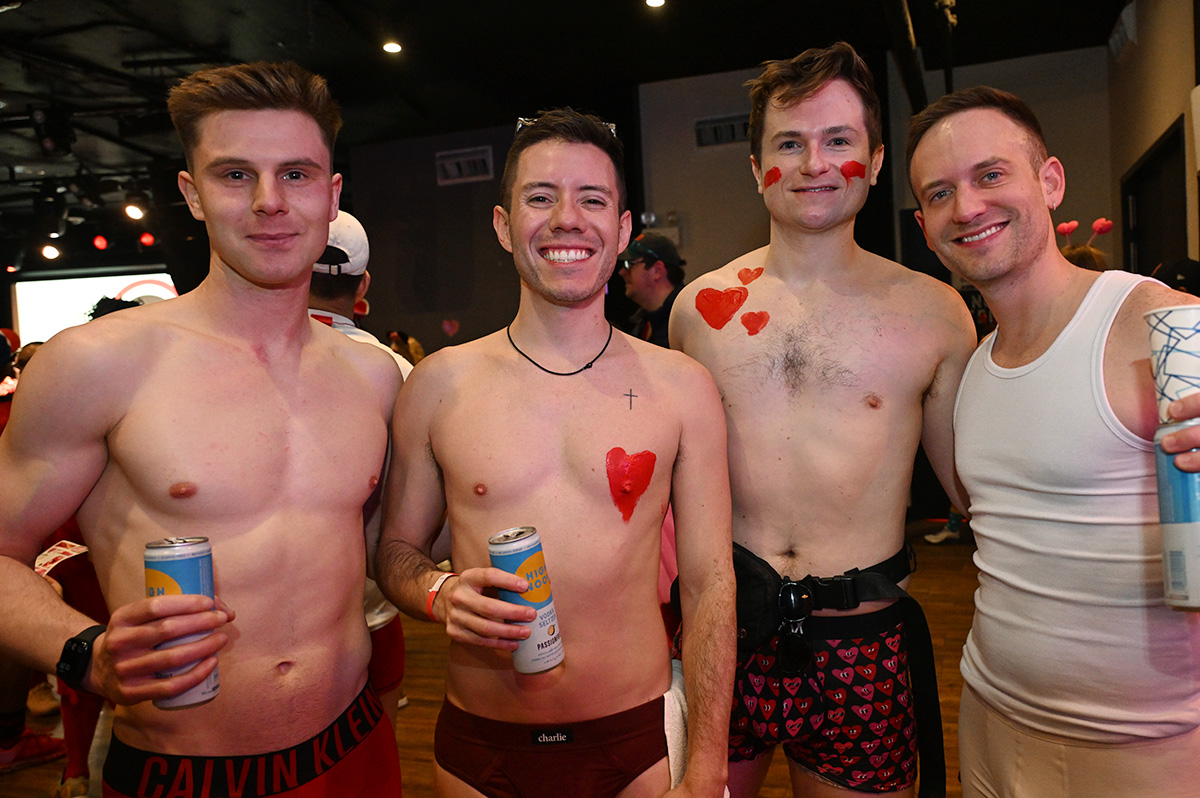
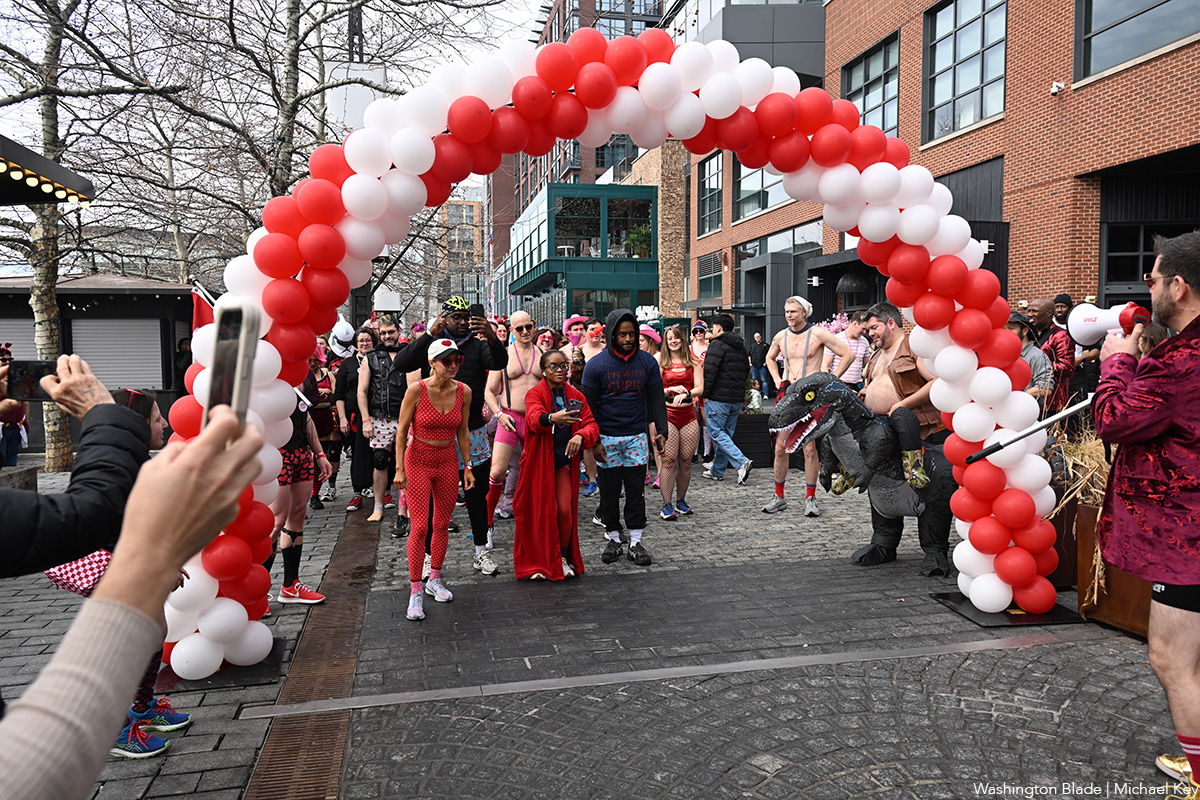
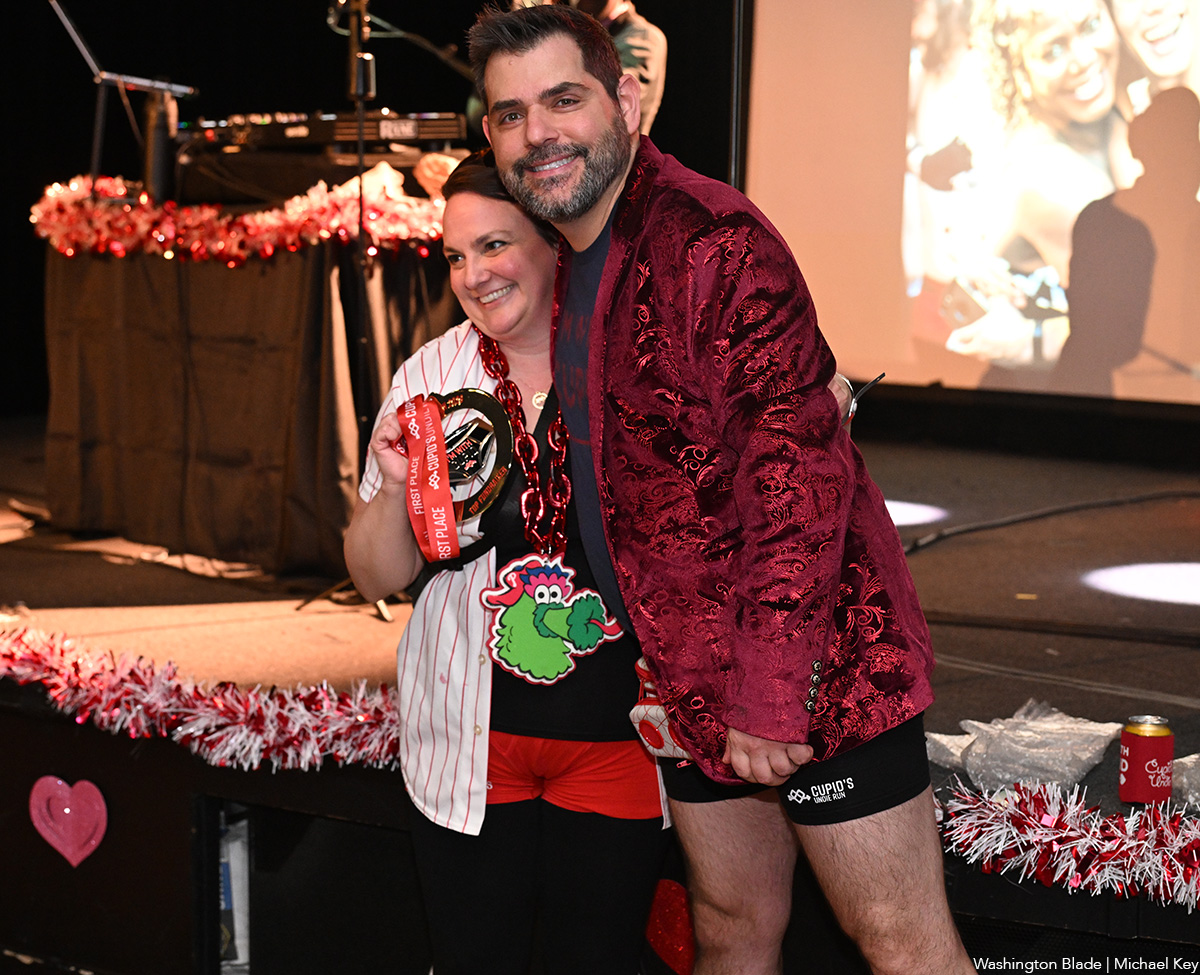
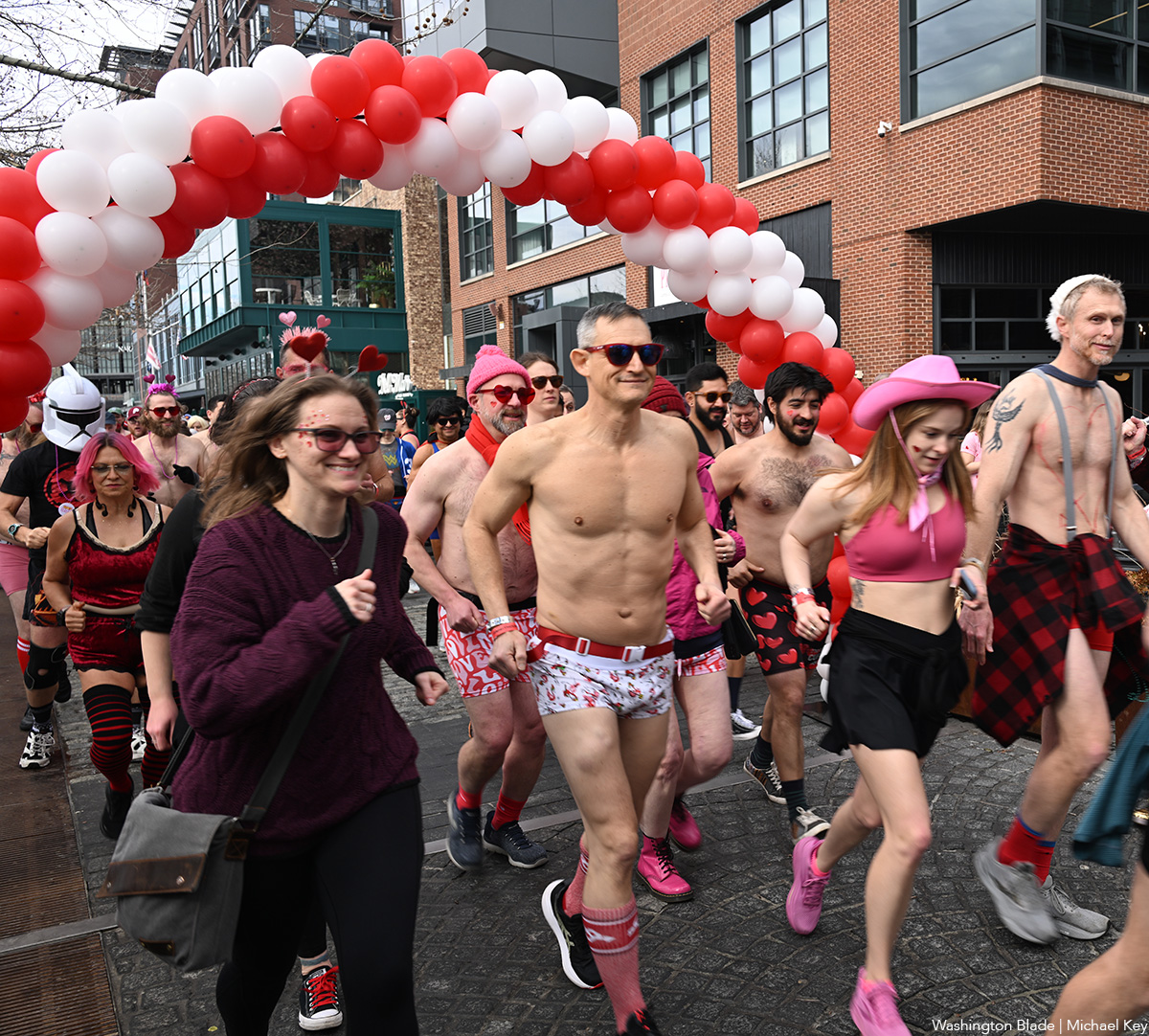
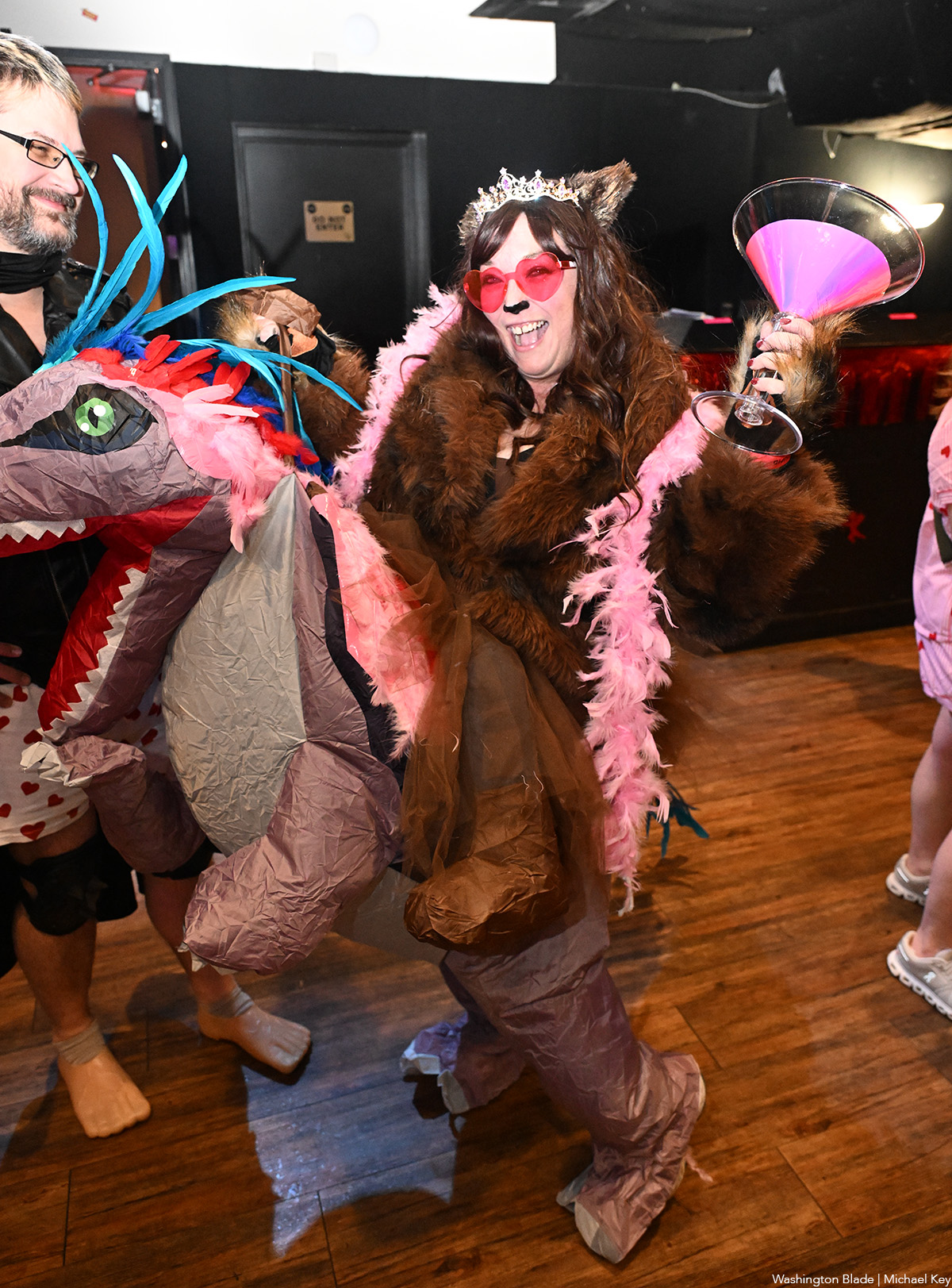
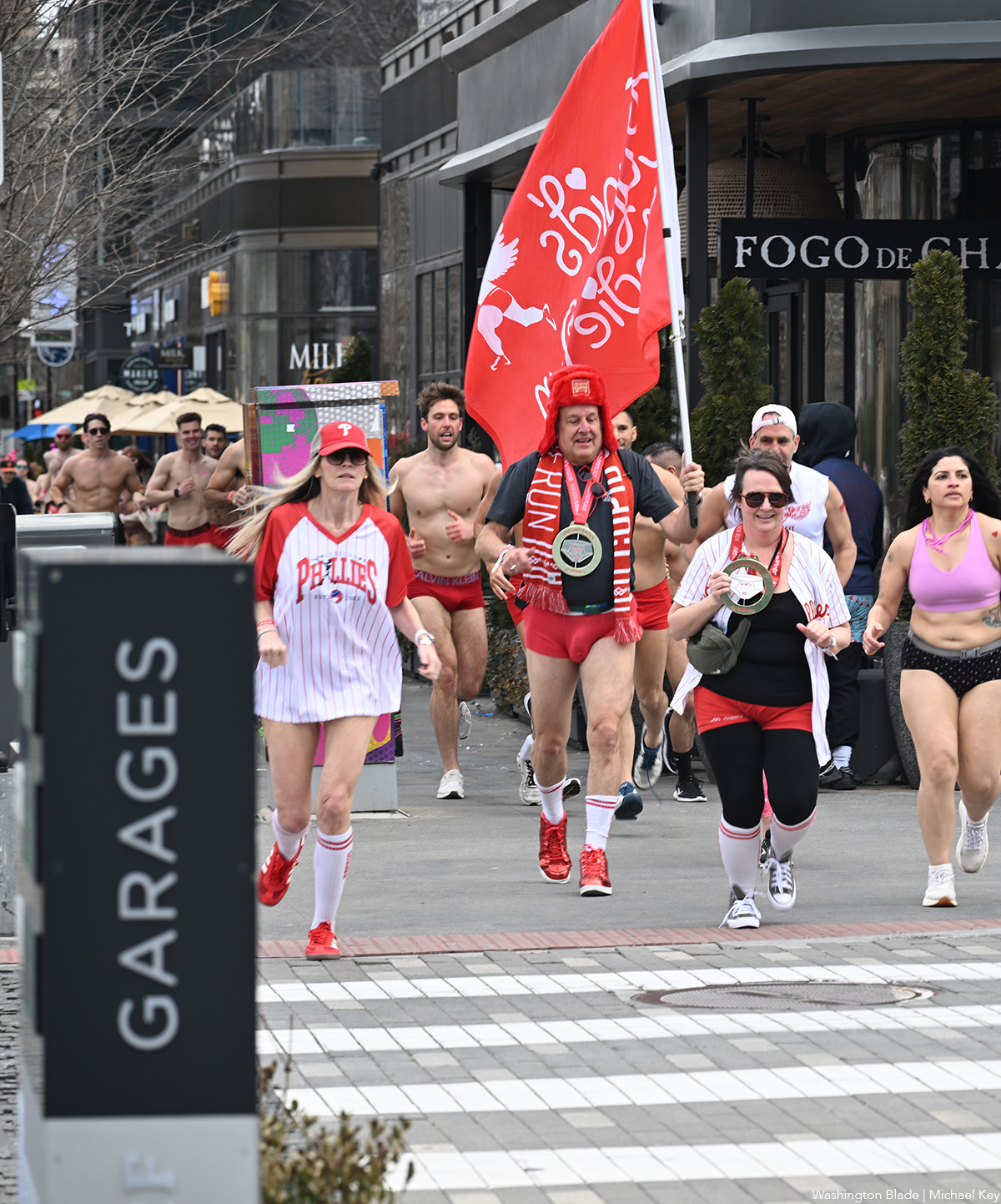
-

 Movies5 days ago
Movies5 days agoRadical reframing highlights the ‘Wuthering’ highs and lows of a classic
-

 District of Columbia3 days ago
District of Columbia3 days agoJudge rescinds order against activist in Capital Pride lawsuit
-

 Ecuador4 days ago
Ecuador4 days agoJusticia reconoce delito de odio en caso de bullying en Instituto Nacional Mejía de Ecuador
-

 District of Columbia4 days ago
District of Columbia4 days agoTrans activists arrested outside HHS headquarters in D.C.

